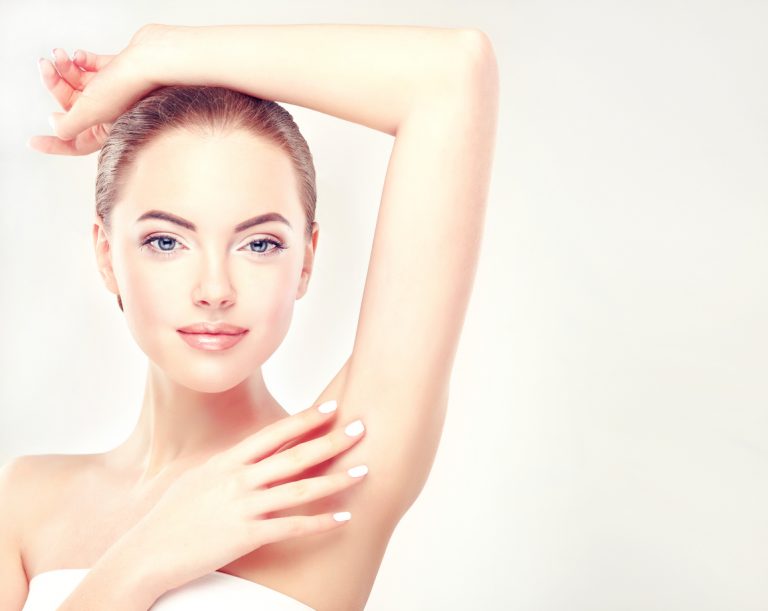
Still sweating in cold weather?
We take a closer look at hyperhidrosis, so you can make it through winter without feeling like a wet blanket.
Dr Michael Rich is a specialist dermatologist who has been performing tumescent liposuction for over 30 years. Find out if Liposuction is suitable for you at ENRICH Clinic.
At ENRICH Clinic, we have a wide range of dermatological and cosmetic body treatments tailored to individual body and patient needs.
At ENRICH Clinic, our treatments are performed by our medical team consisting of doctors, nurses, and dermatologists and are tailored to each patient’s skin health needs.
ENRICH Clinic is committed to your skin health and well-being with a range of dermatological & cosmetic treatments tailored to the individual. Our treatments are performed by our medical team consisting of doctors, nurses, and dermatologists.
Skin health is essential for everyone. ENRICH Clinic has a wide range of technologies and dermatological solutions to help you achieve your skin care goals.
 Sweating is our body’s way of letting off steam, so to speak, releasing heat into the universe and away from our skin.
Sweating is our body’s way of letting off steam, so to speak, releasing heat into the universe and away from our skin.
Temperature control, however, is just one reason why we sweat. Sweating is a complex set of interactions that involves multiple systems within us. We use the skin, glands, and the nervous system, plus areas of the brain that control our core body temperature.
Hyperhidrosis is a condition that affects an estimated third of all humans, with ‘primary focal hyperhidrosis’ the term used to describe ‘excess’ (as in, we don’t like it) sweating that appears in certain areas: palms, underarms, and your face. The sweating is deemed to be in ‘natural’ areas and appears on both sides equally.
Why? We don’t really know. Those with hyperhidrosis do not have larger or more sweat glands than anyone else, so like everything else: when we don’t know, we like to blame genetics. Excessive sweating treatments for hyperhidrosis are available at our Melbourne clinic, and you can read more about excessive sweating treatments here.
Many pregnant women complain of sweatiness, which usually happens due to an increase in body temperature during pregnancy. Hormone levels cause increased blood flow to the skin, increase your metabolism, and cause sweating.
The thyroid is responsible for managing our metabolism, so when your thyroid dials itself up, we sweat more. Hyperthyroidism produces excess thyroid hormones, causing your sweating to ramp up along with all your other body systems.
Sweating is not the only symptom of hyperthyroidism, since a rushing metabolism means weight loss, sleeplessness, and fatigue. See your doctor if you think you may have these symptoms, since hyperthyroidism can be treated. Excessive sweating treatments for those with overactive thyroids is most likely to revolve around treating the thyroid.
Perimenopause is the time just prior to a woman entering menopause – meno meaning menstruation (periods) and pause meaning, well, pause – stop – period stop. This stage of a woman’s life causes hormonal changes that can result in hot flushes that cause sweating.
These hot flushes can happen at any time, night or day, and can be quite disruptive and are pretty uncomfortable. Luckily, hot flushes will eventually end as menopause kicks in for real. Excessive sweating treatments for those in perimenopause are management strategies, and for some, perhaps hormonal modulations.
Diabetics can have increases in sweating as a physiological response to either low blood sugar, a peculiar food response, or even at night. A marker of blood sugar falling below proper levels is sweating.
The peculiar form of sweating is called ‘gustatory sweating’, which occurs in some diabetics with nerve damage. Gustatory sweating occurs when a diabetic thinks about food or eats food, with the sweating typically only occurring from the shoulders up. Diabetics can also get night sweats (nocturnal hyperhidrosis) but this is not just for diabetics – those with infections, sleep apnoea and hormone issues may sweat at night. Excessive sweating treatments in diabetics are likely to focus on blood sugar regulation and management strategies.
Some drugs can cause sweating, in particular, a class of drug called a diaphoretic. You can find a long list of these sweat-inducing drugs at the International Hyperhidrosis Society. If you suspect your medicine may be causing your sweating, check the list and known side effects in the drug information sheet that comes in the packet.
Excessive sweating treatments for those on medications could include switching or reducing the dose of medications, and in the case where this is not possible, establishing management strategies.
Your body is hardwired to produce sweat when you get nervous or anxious – that is, if you feel threatened. Stress hormones are deemed to be responsible for this. Some theories suggest that we sweat more during stressful times so that water can be eliminated via the skin (as opposed to the kidneys), possibly to reduce the need to urinate in an emergency.
Your breathing and heart rate will also increase to push blood into the areas of your body – muscles, heart – that you need to run away or fight if necessary. This causes an increase in temperature; thus sweating is used to regulate body temperature. Anyone with anxiety disorders may need management strategies that include excessive sweating treatments. Speak to your doctor for more information on your individual case.
*With all surgeries or procedures, there are risks. Consult your physician (GP) before undertaking any surgical or cosmetic procedure. Please read the consent forms carefully and be informed about every aspect of your treatment. Surgeries such as liposuction have a mandatory seven-day cooling-off period to give patients adequate time to be sure of their surgery choice. Results may also vary from person to person due to many factors, including the individual’s genetics, diet and exercise. Before and after photos are only relevant to the patient in the photo and do not necessarily reflect the results other patients may experience. Ask questions. Our team of dermatologists, doctors and nurses are here to help you with any of your queries. This page is not advice and is intended to be informational only. We endeavour to keep all our information up to date; however, this site is intended as a guide and not a definitive information portal or in any way constitutes medical advice.
"*" indicates required fields
Combining Dr Rich’s dermatological skill with his knowledge of restorative skin regimes and treatments, the ENRICH range is formulated to help maintain and complement your skin. Our signature Vitamin C Day & Night creams are now joined by a Vit A, B,&C Serum and a B5 Hyaluronic Gel, both with hydration properties and much, much more.

We take a closer look at hyperhidrosis, so you can make it through winter without feeling like a wet blanket.

If you’re tired of taking a spare top everywhere, wasting money on useless antiperspirant and worrying about your sweating, we can help.

Compounding the benefits of your treatments by combining treatments can make a huge impact on results: the 1 + 1 = 3 effect!
Subscribe to the ENRICH newsletter and receive latest news & updates from our team.
Enrich Clinic acknowledges the Traditional Lands of the Wurundjeri Woi Wurrung and Bunurong peoples of the East Kulin Nations on which we work and trade. We pay respect to their Elders past, present and emerging. We extend our acknowledgement and respect to the LGBTQIA+ community who we welcome and support. Read our full Acknowledgement Statement here
